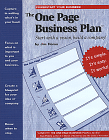Note: Although this person provided specifics about her business, we have chosen to maintain confidentiality in order to protect her idea.
Dear Katie:
I have started an email support service (that costs a small monthly fee), and I don't know how to reach the people who could really benefit from my service. I sent out notices to everyone on my personal and professional email list, informing them of my service and asking them to refer anyone whom they thought would be interested.
I have placed ads on Yahoo and some other internet classified sites and I'm in the process of getting a domain name and creating a website. I am also going to list my daily emails as an ezine at various listing sites.
What else can I do to get the word out to homebound, isolated, disabled or ill people who might want to subscribe to my service? I want to spend my time on actually creating and running the service, not on promoting it.
I'd appreciate any help you can give me.
Sincerely,
Miranda
Hi Miranda,
It sounds as though you have a very interesting idea. Hopefully it can take off for you, although to be honest, most people offer email newsletters at no cost to the individuals, so remember you will be competing with those folks, too.
Most of your questions are marketing questions, and to be honest again, in order to create anything that is successful online, you're going to have to spend a substantial amount of time (or money as you pay someone else) to get your project rolling the way you'd like. Like anything else, once you hit "critical mass", it should take off and almost run itself.
The first thing you will need to do to be "legitimate" in the internet community is to have your own domain name. They're very easy to get, only cost $70 for the first 2 years (note: yes, it used to cost this much – now you can get them for as low as $7/year), and most Internet Service Providers (ISPs) should be able to park it for you for no extra charge until you're ready to open your website. In fact, this is something I recommend before you "open your doors" for business. Think about it: a retail store wouldn't start selling stuff from their warehouse, and then expect folks to transfer to the store later.
So, get your domain name, set up your email from there (some hosts even let you park your domain and still get email using the domain name for a small fee prior to actually publishing the site to the web).
Then, or even in the meantime, some other things to consider include using the internet to investigate sites where the people you are interested in will be "hanging out". When you find a site that would appeal to your audience, contact the owner of the site and ask about a reciprocal link. A reciprocal link means that each of you link to the other's site. If your site is already up, you can add the other link first. Letting the owner of the other site know you have already linked to his/he r site will strengthen the attractiveness for linking to yours.
Build your network by building your relationships, and that will build referrals far more quickly. You will need to convince the other owner that you have something to offer him/her in exchange for the link (for instance, a substantial subscriber base, information that his/her visitors may be interested in, etc.).
I like that you offer a free sample. That's a good way to let people know what your product is like before they are required to pay for it. Perhaps you could also offer an incentive for people who send you referrals who "stick" (for instance a free month for anyone whose referral signs up for 3 months).
Now, to be honest for the third time, I need to ask, how much market research have you done? Are you sure there's a market for your services (have you found enough people who will want to pay for them)? Have you found other people who are doing similar things in a different market and actually making money on them? For instance, someone else who has a pay-for-email service relating to a different market segment? You have a lovely idea, but with so much free stuff on the internet, you may well find out that there's just not enough interest by folks who are willing to pay. I recommend you do a great deal of research first, and consider having your service be a free one that supports something else that provides the profit. For instance, provide a website that has all the information online (that you've listed in your offer), some free email services, and then a product or other service for a fee.
You might also be able to offer your service (at a fee) to existing online companies for whom it could become an acillary/free product from them. An example might be a pharmaceutical company, or one that specializes in medical equipment for the home. You wouldn't make as much money per subscriber, but you would be generating an income. One of the secrets to success on the internet is giving stuff away, so I'm wondering about the viability of your idea. Before you get too far down the path , putting your heart and soul into something you think is a good idea, I'd highly recommend you do a lot of research.
If you find you have a viable product, there are several internet marketing programs that can help you promote your business. Unfortunately, you will have to do marketing in some way. Any business that wants to stay in business has to put time, effort and at least a bit of money into marketing.
Good Luck, and let me know how it goes.
Katie Darden
©2000-2010 Katie Darden, Career Life Institute
